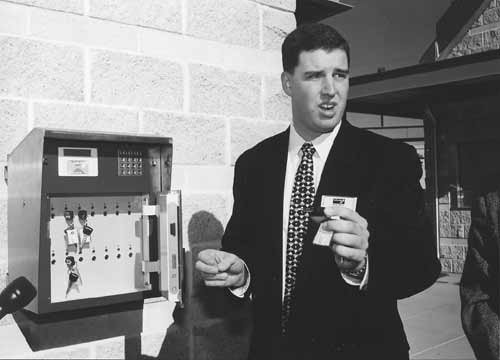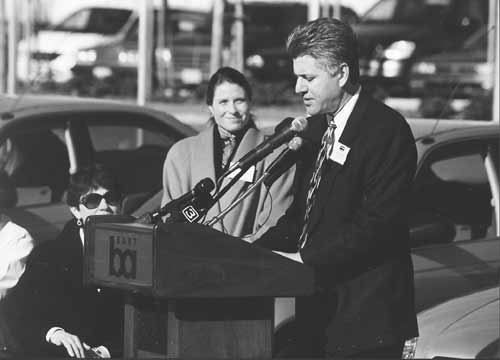Honda's concept of an "Intelligent Community Vehicle System" (ICVS) is undergoing its initial U.S. test as part of CarLink, the nation's first smart car-sharing program, which got underway recently near the San Francisco Bay Area.
A research project conducted by the Institute of Transportation Studies at the University of California, Davis, Honda and others, CarLink introduces an intelligent way to reduce the number of cars on the road, improve air quality and ease parking shortages.
Not surprisingly, the parking advantages offered with the program are very attractive to commuters, since the Honda Civic GX program vehicles are available immediately adjacent to the BART (Bay Area Rapid Transit) stations where CarLink operates.
Up to 60 residents will participate in the program from California's East Bay suburbs as a homeside commuter, workside commuter, or day user. Homeside commuters pay $200 per month, drive to and from the Dublin/Pleasanton BART station and have use of the car on nights and weekends; alternately, workside commuters pay $60 per month, take BART to the Dublin/Pleasanton station and drive to and from work at Lawrence Livermore National Laboratory. Day users who work at Lawrence Livermore National Laboratory pay $1.50 per hour and 10 cents per mile to use a car for personal trips during the work day.
Sandy Mathews, a workside commuter, drives from home to the BART station, and really hopes CarLink takes off. It has allowed her to reduce the daily number of miles she was putting on her car from 60 to just eight. "I keep looking at the tank in my car and it's still full," said Mathews.
Honda R&D is partnering with UC Davis in the CarLink project to provide research assistance, funding and vehicles. Twelve Honda Civic GX sedans, powered by clean-burning compressed natural gas (CNG), were donated to CarLink, making this one of the first uses of CNG vehicles among consumers.
"Creative solutions to the transportation challenges of the 21st century require both advanced vehicles and better integration of the automobile within the overall transportation system," said Robert Bienenfeld, advanced environmental vehicle marketing manager for American Honda. "Honda's participation in the CarLink program allows us to see how consumers respond to the shared-use concept."
In addition, while the alternate fuel infrastructure is still building, this system allows commuters to experience clean-fuel vehicles.
To access the vehicles, each driver has a "smart card" with a PIN number that lets them into a key box. An advanced computer system records all information on the car and user and assigns a set of keys to take. In each car, an electronic tracking system monitors the location and user, transmitting real-time data to a command center.
"The beauty of the system is that it's smart," said Susan Shaheen, CarLink project manager and doctoral candidate at UC Davis. "With advanced technology systems, we can offer drivers convenience and flexibility, operate the program efficiently, and maximize security for the cars and their keys."
Honda Motor Co. has been researching the shared-use concept since 1994, when it announced its vision for an Intelligent Community Vehicle System (ICVS). In October 1998, Honda began conducting public ICVS test-drives at its Twin Ring Motegi motorsports complex in Tochigi, Japan. Using environmentally sensitive vehicles such as small electric cars and electric bicycles, users check out vehicles as needed using smart cards to commute around the 1,600-acre facility. The system helps relieve parking shortages and traffic congestion while retaining the convenience of personal transportation.

|
| A researcher demonstrates the "smart card" technology used in CarLink, the nation's first smart car sharing system. |

|
| Robert Bienenfeld, advanced environmental vehicle marketing manager for American Honda, at a press conference at the Dublin/Pleasanton BART station. |